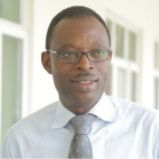
Emmanuel Iyayi Unuabonah
TWAS Alumnus Emmanuel Iyayi Unuabonah, an associate professor in the Department of Chemical Sciences at Redeemers University (RU), in Nigeria, passed away on 26 March 2025, at age 50.
Unuabonah, a former 2009–2013 TWAS Young Affiliate, was the head of the Environmental and Chemical Processes Research Group at RU.
He obtained his MSc (2003) and PhD (2007) in industrial chemistry at the University of Ibadan in Nigeria. He received a Chinese Academy of Sciences PhD fellowship in 2005, and a TWAS-Sida grant in 2010 and 2014.
His research focused on water purification, a field where he pioneered cheap and innovative solutions to remove heavy metals and noxious substances using, among others, clay and papaya seeds, local materials, and agrowastes, instead of expensive resins such as zeolites and activated carbon.
He was the founding president and an alumnus of the Nigerian Young Academy, a member of the International Adsorption Society and a Fellow of the African Science Leadership Program. He was also the Director of the African Center of Excellence for Water and Environmental Research (Acewater).
In 2017, the Nigerian Academy of Science named him the first winner of the Gold Medal in the Physical Sciences.
*********
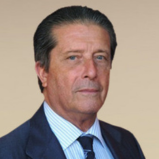
Federico Mayor Zaragoza
Federico Mayor Zaragoza, a 1991 TWAS Fellow, passed away on 19 December 2024, at the age of 90. From 1963–73, he worked as a professor of biochemistry at the University of Granada, Spain and from 1974–78 he served as the director of the Severo Ochoa Molecular Biology Centre in Madrid, Spain, of which he was a co-founder.
Most notably, in 1978 he was appointed deputy director-general of UNESCO, and in 1987 he became UNESCO director-general, serving in that capacity until 1999. After that experience, he returned to Spain where he created the Foundation for a Culture of Peace, of which he was the chairman. His scientific interests included perinatal brain biochemistry, pathology of brain receptors, and mental disability prevention.
In his welcome address at the eighth General Meeting of TWAS, then the Third World Academy of Sciences, held in Trieste on 26 November 1996, he said: "Education for all remains the foundation for the achievement of sustainable human development in the century to come. Basic education will continue to be an absolute priority, as it forms the essential first step towards further learning."
*********
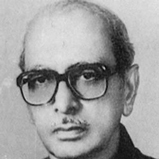
Sukh Dev
Indian organic chemist Professor Sukh Dev, a TWAS Fellow since 1991, passed away on 16 October 2024.
A native of Punjab, he earned his master's degree from the Dayanand Anglo Vedic College, Lahore, and his PhD from the Indian Institute of Science (IISC), Bangalore.
Dev focused his scientific interests on a class of naturally occurring organic compounds called terpenoid, the properties of which he investigated. This research, in turn, led him to discover new structures in chemicals called sesqui- and diterpenoids.
While studying Indian medicinal plants, he discovered a substance called guggulsterone, in the resin of the guggul plant (Commiphora mukul), which seemed a promising agent to lower cholesterol.
He was a prolific scientist, scholar and writer, with more than 290 research papers published in his name, 10 books and 55 patents. His most famous book, published in 2006, is Prime Ayurvedic Plant Drugs, which explores the ancient and modern traditions of Ayurvedic medicine.
Among the recognitions that he received are: the Shanti Swarup Bhatnagar Prize (1964), the most prestigious Indian award in the science and technology categories; TWAS Award in chemistry (1988); and the Srinivasan Ramanujan Birth Centenary Award of the Indian Science Congress Association (1992).
*********
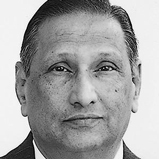
Abdul Mujeeb-Kazi
Pakistani scientist Abdul Mujeeb-Kazi, a TWAS Fellow since 2000, passed away on 18 July 2024. He dedicated his scientific interests to agricultural research and development. He was a distinguished scientist at the International Maize and Wheat Improvement Center (CIMMYT), Mexico, and former head of the Wheat Wide Crosses division, where he served CIMMYT and the Consultative Group for International Agricultural Research for over 35 years.
Since his youth, Mujeeb-Kazi showed a deep passion for agriculture and botany, which led him to pursue a career in this field, earning a PhD in plant breeding at Kansas State University, United States.
His lifelong research focused on cereal improvement, genetic diversity, sustainable agriculture, and the betterment of wheat—which is vital to the livelihoods of hundreds of millions of people. Mujeeb-Kazi worked on the wild varieties of wheat to increase the gene pool and help the plants cope with emerging stressors like drought and diseases. He was wheat advisor to the chairs of the Pakistan Atomic Energy Commission and the Pakistan Agricultural Research Council.
From 1974–1979 he worked as a research geneticist in Kansas State University, Kansas, and then moved to CIMMYT, where he worked until 2004. He returned to Pakistan as a foreign faculty professor at the Biotechnology Institute in Peshawar, and at the National Institute of Biotechnology and Genetic Engineering in Faisalabad.
He was a member of several academies including the American Society of Agronomy, the Mexican Academy of Sciences, and the Pakistan Academy of Sciences. He left behind a legacy of significant contributions to global food security and sustainable agriculture.
*********
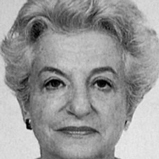
Anita Dolly Panek
Brazilian biochemist Anita Dolly Panek, elected to TWAS in 1989, passed away on 27 March 2024. Panek was a full professor in the department of biochemistry at the Federal University of Rio de Janeiro (UFRJ), Brazil, since 1976. A native of Poland, she moved to Brazil because of World War II, and, in 1962, she obtained her PhD from UFRJ.
Her research focused on the metabolism of a sugar called trehalose, which has a pivotal role in the metabolism of yeast Saccharomyces cerevisiae, used in winemaking, baking, and brewing. She clarified the function of the sugar trehalose in yeast, proving that it is a source of energy during cell division. In addition, she showed that trehalose produced internally by yeast cells protects them against damage from stressors such as freezing, dehydration, heat, and germination.
She obtained three patents for processes regarding the attainment, use, and purification of trehalose. Since 1961, she was a research scientist at the National Research Council and was also a member of the Brazilian Academy of Sciences, Rio de Janeiro, and of the Latin American Academy of Sciences, Caracas, Venezuela. In 1996, she received the Commander of the Order of National Scientific Merit.
*********
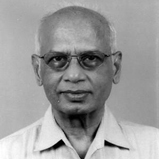
Martanda Varma Sankaran Valiathan
Cardiac surgeon and TWAS Fellow Martanda Varma Sankaran Valiathan passed away on 17 July 2024. Elected to TWAS in 1998, Valiathan was a national research professor at Manipal University, in Jaipur, India. He trained as a surgeon at the University of Liverpool (UK) and then obtained a master's degree in surgery. He is remembered for his pivotal role in founding the Sree Chitra Institute for Medical Sciences and Technology, in Kerala, which he directed from 1979–1994.
However, his name is also inseparably tied to one groundbreaking advancement in the history of cardiovascular devices in India. Valiathan developed a low-cost, mechanical heart valve for patients with limited financial resources, whose heart valves were damaged by rheumatic fever and infection. After almost 12 years of hard work, he implanted the first of these valves in 1990. He also developed low-cost, disposable blood bags.
He was a fellow of the Royal College of Physicians and Surgeons, Canada, the National Academies of Sciences, Engineering, and Medicine (India), and the Society of Thoracic Surgeons, US.
For his contributions to healthcare, Valiathan was awarded the fourth-highest civilian award of the Republic of India—the Padma Shri (2002)—and the second-highest civilian award of the Republic of India—the Padma Vibhushan (2005).
His awards include Hunterian Professorship of the Royal College of Surgeons of England, and Chevalier of the Order of Palmes Académiques from the French Government.
*********
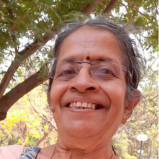
Rohini M. Godbole
Professor Rohini M. Godbole, a prominent Indian physicist and an advocate for women in science, passed away on 25 October 2024.
A native of Pune, India, she was an honorary professor at the Centre for High Energy Physics, Indian Institute of Science, in Bangalore, India. Her name was renowned worldwide for her groundbreaking contributions to theoretical physics, in particular about the Higgs boson and quantum chromodynamics.
During her scientific career, she dealt with cutting-edge frontiers in physics such as new particle production at current and future colliders, high-energy physics phenomenology, supersymmetry, and electroweak physics. Her studies provided a better understanding of the Standard Model, the central theory underpinning the particle physics field.
An active member of TWAS since her affiliation, in 2009, she was a fellow of all three prestigious science academies of India: the National Academy of Sciences, Allahabad (2007); the Indian National Science Academy, Delhi (2003); and the Indian Academy of Sciences, Bangalore (1992). Among the many honours that she has received are the Rustom Choksi Award for Excellence in Research (2006), from the Indian Institute of Science; the JC Bose National Fellowship (2009), from the Department of Science & Technology, Government of India; and the Meghnad Saha Memorial Gold Medal, Asiatic Society of Kolkata.
***
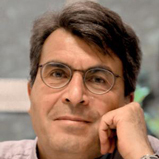
Durmuş Ali Demir
Durmuş Ali Demir, a Turkish theoretical physicist, professor at the Faculty of Engineering and Natural Sciences, Sabanci University in Istanbul, Türkiye, and a 2009 TWAS Fellow, passed away on 24 February 2024.
Demir earned his PhD in Physics (1995) from the Middle East Technical University, in Türkiye, and worked as a post-doc at the University of Pennsylvania (1996–97), at the ICTP (1998–2000), and at the William I. Fine Theoretical Physics Institute, University of Minnesota (2000–2003). His scientific interests covered particle physics including dark matter, gravitation including black holes and inflation in emergent gravity, and quantum physics.
He was the first Turkish researcher to win the Alexander von Humboldt Foundation Friedrich Wilhelm Bessel Research Award, in 2007.
An OIC-COMSTECH distinguished scholar, Demir served in the editorial board of Letters in High Energy Physics journal. He was a member of the CERN-CMS Experiment, Science Academy-Istanbul.
***
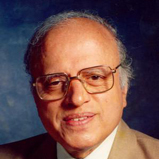
Monkombu Sambasivan Swaminathan
Monkombu Sambasivan Swaminathan, an esteemed agriculture scientist and a TWAS Founding Fellow, passed away on 28 September 2023, at 98.
Swaminathan was a plant geneticist and the 'father' of the Indian Green Revolution, a movement aimed at ensuring sustainable resource management, as well as food security for all.
He promoted innovative policies that helped India escape from the brink of famine during the 1960s. His pioneering work focused on the improvement of crop yields, to increase food production and alleviate hunger and poverty. His efforts included helping farmers to become familiar with cutting-edge technologies, empowering women and supporting gender equality in agriculture.
Swaminathan earned his PhD in 1952, from the School of Agriculture, University of Cambridge (UK), and from 1952–1953 he worked as a research associate in genetics, University of Wisconsin-Madison, US. Then he returned to India, where he joined a rice hybridization program at the National Rice Research Institute, in Cuttack.
In his career, Swaminathan held key positions as the director general of the Indian Council of Agricultural Research (ICAR) and the International Rice Research Institute (IRRI).
The year of his retirement (1988) marked the beginning of new activities as a consultant and in government positions, both in India and abroad. For his leadership in the Indian Green Revolution, he received the first World Food Prize. Other awards were the Albert Einstein World Science Award, Honda Award, Tyler Prize, Franklin D. Roosevelt Four Freedoms Award, UNESCO Gandhi Prize, and the Indira Gandhi Prize for Peace. India honoured him with the Padma Shri, Padma Bhushan, and Padma Vibhushan.
***
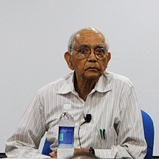
Calyampudi Radhakrishna Rao
Calyampudi Radhakrishna Rao, or C.R. Rao, a world-renowned statistician and a TWAS Founding Fellow, passed away on 22 August 2023, at 102. He was a research professor in the Department of Biostatistics, School of Public Health and Health Professions in Buffalo, New York.
A pioneer of modern statistics, C.R. Rao had a remarkably long career, which spanned 80 years.
He spent 40 years at the Indian Statistical Institute, in Kolkata, India, where he obtained three seminal results, at the young age of 25.
The first result, called the Cramer-Rao lower bound, allows knowing when a method for estimating a quantity is as good as any method can be. The second result, the Rao-Blackwell Theorem, offers the tools to turn an estimate into an optimal one. The third result paved the way of a new interdisciplinary field called 'information geometry', which has been used in Higgs boson measurements at the Large Hadron Collider, the world's highest-energy particle collider located in Switzerland.
In 1979, he moved to the United States to hold teaching positions at the University of Pittsburgh and Pennsylvania State University. In 2010, he went to Buffalo University as a research professor in the Department of Biostatistics, School of Public Health and Health Professions.
In 2002, Rao established the C.R. Rao Advanced Institute of Mathematics, Statistics and Computer Science in Hyderabad, India. In that same year, he received the US National Medal of Science (2002) from President George W. Bush. In 2014 he was bestowed the India Science Award, and in 2023 he received the International Prize in Statistics, considered the Nobel Prize for the field.
***
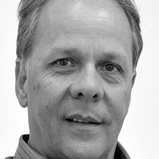
Corrêa-Oliveira Rodrigo
Brazilian scientist and 2014 TWAS Fellow Rodrigo Corrêa-Oliveira passed away on 27 October 2023.
He started his scientific career at the Ezequiel Dias Foundation (1985), in Brazil, and then became a full researcher at the Institute René Rachou (1986), where he led the cellular and molecular immunology laboratory. In 2009 he was appointed the Institute director and held this position until 2012, when he retired.
In 2001, he was elected president of the Brazilian Society of Immunology.
From 2006 to 2007 he acted as vice-president of the Tropical Disease Research Board of the World Health Organization. From 2017–23 he was a professor of immunology and served as the vice-president for research and biological collections at the Oswaldo Cruz Foundation.
His scientific interests focused on infectious diseases, population genetics, immunoregulation mechanisms and the immune responses to parasitic diseases. In particular, he focused on infections caused by Schistosoma mansoni, Trypanosoma cruzi, and also Zika and dengue viruses. His deep knowledge of the immunological processes in humans earned him an international reputation, allowing him to bring ground-breaking contributions to clinical trials with international partners.
He authored 361 articles in high-impact journals, and eight book chapters.
***
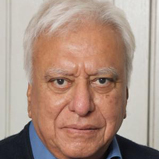
Hoosen 'Jerry' Coovadia
Hoosen 'Jerry' Coovadia, an emeritus professor of paediatrics and child health with the Nelson Mandela School of Medicine, University of KwaZulu-Natal, in Durban, South Africa, passed away on 4 October 2023. Elected to TWAS in 2005, he spent his career caring for the poorest in South Africa. His efforts were focused on the understanding of the immunodeficiency of malnutrition, infectious diseases, measles and kidney disease in African children.
He specialised in paediatrics at the University of Natal and became a Fellow of the College of Paediatricians of the Colleges of Medicine of South Africa, in 1971. In 1974, he earned a master’s degree in immunology from the University of Birmingham, UK.
He carried out ground-breaking research about the transmission of HIV from mother to child. His results proved that the risk of HIV mother-to-child infection through breastfeeding is greatly reduced if the baby receives antiretroviral drugs, or the mother exclusively breastfeeds. Coovadia's achievements shaped international policies about the prevention and treatment of HIV/AIDS, changing the stigma whereby women with HIV should not breastfeed their babies.
In 1984, he released the first edition of his textbook, Coovadia’s Paediatrics & Child Health: A manual for health professionals in developing countries, which marked the path for generations of paediatricians. In 2021, the seventh edition of the book was released.
In 2000, he served as co-chair of AIDS 2000, the 13th International AIDS Conference held in Durban, and played a pivotal role in the preparation of the Durban Declaration. Over 5,000 among scientists and leading academics signed the document as a response to HIV/AIDS denialism. The declaration stated that "[t]he evidence that AIDS is caused by HIV-1 or HIV-2 is clear-cut, exhaustive and unambiguous, meeting the highest standards of science".
He was also the associate scientific director at CAPRISA, the Centre for the AIDS Programme Research in South Africa. The awards he received include the Order of the Star of South Africa (1999), the Nelson Mandela Award for Health and Human Rights (2000), and the AAAS Award for Scientific Freedom and Responsibility (2013).
***
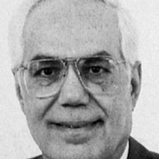
Mohamed Taha El-Ashry
TWAS Fellow Mohamed Taha El-Ashri, a senior Fellow with the UN Foundation and the first chief executive officer and chairperson of the Global Environment Facility (1994–2003) passed away on 24 June 2023. He was elected to TWAS in 1990, and from 1991–93 served as the director of the Environment Department at the World Bank.
El-Ashri obtained his Bachelor of Science degree with honours in 1959 from Cairo University, a Master of Science in 1963 and a PhD in Geology, in 1966, from the University of Illinois.
During his career, he was a researcher and a professor with several universities, including Cairo University, Wilkes University, and Illinois State Geological Survey. His research focused on the management of water and environmental resources and on renewable energy-related policies.
Among his awards are the UNEP's Champions of the Earth, and The Haub Prize for Environmental Diplomacy. He was a fellow of the Geological Society of America and the American Association for the Advancement of Science and a member of the African Academy of Sciences.
***
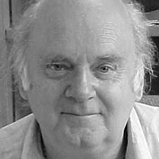
Brian Warner
Brian Warner, an emeritus distinguished professor in the Department of Astronomy at the University of Cape Town (UCT) and a 2009 TWAS Fellow, passed away on 5 May 2023. Upon his arrival in South Africa, he established the Department of Astronomy at UCT (1972), which he chaired for 33 years before retiring in 2004. There, he introduced a new technique—called high-speed photoelectric photometry—that allowed the study of southern skies with unprecedented clarity. Around him, a vibrant community of astronomers soon grew up.
Warner focused his scientific interests on stellar spectroscopy, Barium stars and late-type stars. The latter are stars whose surface temperature is cooler than the Sun.
From 2003 to 2009, he served as the vice-president of the International Astronomical Union. He is remembered also for the important role that he played in the construction of the Southern African Large Telescope, and in the bid for the Square Kilometre Array, an intergovernmental international radio telescope built in Australia and South Africa.
A founding member of the Academy of Science of South Africa (ASSAf), he received numerous awards in recognition of his scientific merits. The awards include the ASSAf Science for Society Gold Medal in 2004, and the Gill Medal from the Astronomical Society of Southern Africa, in 1992.
***
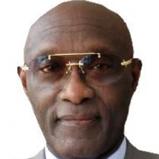
Edward Solomon Ayensu
Ghanaian scientist Edward Solomon Ayensu, a TWAS Fellow since 1985, passed away on 22 April 2023.
Ayensu was a founding Fellow of the African Academy of Sciences and an advisor on science, technology and economic development. An expert on plants, he wrote several books including Medicinal Plants of West Africa (1978), Medicinal Plants of the West Indies (1981), and Medicinal Plants of China (1985). His scientific interests covered tropical biology and ecology, botany as well as the behaviour of fruit-eating bats. He was interested also in medical topics, in particular retroviruses and HIV. In 2004, he was awarded the TWAS Medal Lecture in Biology.
Ayensu held high-level positions in international scientific organizations. He served as the chairman of the Board of Trustees of the African Institute for Mathematical Sciences Ghana, and the president of the Energy Globe Foundation. He was also a member of the Association for the Advancement of Agricultural Sciences in Africa, The Botanical Society of America, and the American Association for the Advancement of Science.
***
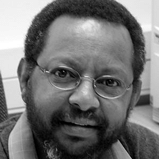
Rashid Hassan
Rashid Hassan, a leading African environmental economist elected to TWAS in 2009, passed away on 4 June 2023. He was a professor emeritus at the University of Pretoria, South Africa, and the secretary general of the Environment Agency of Sudan.
A native of Karima, in Sudan, he obtained a Bachelor of Science (1977) and a Master of Science degree (1982) in agricultural economics from the University of Khartoum, Sudan. Later, he earned his PhD in economics (1989) from Iowa State University (US).
From 1997 to 2016, he served as a professor and founding director of the Centre for Environmental Economics and Policy in Africa, University of Pretoria. A Senior Fellow of the Center for Development Research of the University of Bonn, Germany, since 2010, he was also a Foreign Associate Member of the US National Academy of Sciences (2019–2023).
He served as a member of many national and international boards and science councils, including the UN Committee for Development Policy, and the Consultative Group of International Agricultural Research Science Council.
He was named a fellow of the Economic Research Forum, Cairo, Egypt, in 2016, and a research fellow of the African Academy of Sciences in 2018.
In his scientific career, he published over 170 articles in international scientific journal and chapters and 14 books, and was the founding chief editor of the African Journal of Agricultural and Resource and Economics.
***
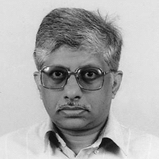
MRS Rao
Manchanahalli Rangaswamy Satyanarayana Rao, or MRS Rao, as he was popularly called, was an eminent Indian scientist and a TWAS Fellow since 2002. He passed away on 13 August 2023.
From 2003–2013, he served as the president of the Jawaharlal Nehru Centre for Advanced Scientific Research, where he worked until the end as an honorary professor, in charge of the chromatin biology laboratory.
He was internationally renowned for his research in biochemistry, molecular and cancer biology. In particular, he has been recognized as the pioneer in chromatin biology, a field of investigation that he first introduced to India.
Rao earned his PhD in biochemistry from the Indian Institute of Science in Bangalore, in 1973, then carried out his postdoctoral research at Baylor College of Medicine in Houston from 1974–76, where he also worked as an assistant professor.
In 2008, he received the TWAS Medal Lecture Award, and in 2010 the Padma Sri award, the fourth-highest civilian award of the Republic of India, for his contributions to science and engineering.
Rao was also a fellow of the Indian Academy of Sciences, Bangalore; the Indian National Science Academy, Delhi; the American Society for Biochemistry and Molecular Biology, and the Human Genome Organization. In his scientific career, he has mentored more than 35 PhD students and hundreds of trainees.
***
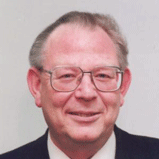
Hans van Ginkel
Hans van Ginkel, the former United Nations University (UNU) rector and a TWAS Fellow since 2005, passed away on 27 July 2023. He served as the President of the International Association of Universities (IAU) from 2000–2004, and chaired the Board of Supervisors of the International Institute of Social Studies From 2011 until 2016.
An esteemed geographer and urban planner, he earned a Master of Science degree (1968) in human and physical geography, anthropology and history, and a PhD degree (1979) in social sciences, both from Utrecht University.
His major scientific interests included population studies and urban development. From 1986 to 1997, he served as Utrecht University rector, then he was appointed a member of the UNU Governing Council, from 1992 to 1997, and UNU rector from 1997 until 2007.
Under his guidance, UNU established partnerships with several institutes in Belgium, Germany, and Malaysia. Most notably, he strengthened UNU’s contacts with the then United Nations Secretary-General, Kofi Annan, bringing UNU closer to the UN headquarters in New York and the UN system in general.
In November 2007, Professor van Ginkel received the Japanese government’s highest award for non-Japanese nationals, the Order of the Rising Sun, for his “contribution to enhancing the international status of Japan”.
For his contributions to the development of the city and the province of Utrecht he received the medal of the Chamber of Commerce of Utrecht and the Golden Medal of the City of Utrecht.
***
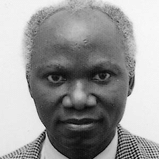
Charles Wambebe
Nigerian pharmacologist and 2000 TWAS Fellow Charles Wambebe passed away on 9 November 2022. He served as the director-general and chief executive officer of the National Institute for Pharmaceutical Research and Development, and the president of the International Biomedical Research in Africa, both in Abuja, Nigeria.
Wambebe obtained his PhD in neuropharmacology, from Ahmadu Bello University, in Zaria, Nigeria (1979). In his career, he was a consultant to the World Health Organization, the African Union Commission, the United Nations Economic Commission for Africa and the United Nations Development Programme.
Thanks to his deep knowledge of plant extracts, he pioneered the use of herbal active principles for medical purposes. His groundbreaking research on Niprisan (2001), a drug extracted from Nigerian herbs, paved the way to the management of sickle cell anemia. In addition, he developed herbal remedies for the treatment of malaria, fungal infection, peptic ulcer and HIV.
He was a member of the Nigerian Academy of Sciences, the British Pharmacological Society, and the West African Society for Pharmacology and Drug Research. In 1997, TWAS awarded him the TWAS Prize in Basic Medical Sciences " ... for his significant contributions to the understanding of the role of endogenous monoamines and neuropeptides in sleep mechanism, seizures, temperature regulation, anxiety, and seizure disorders." In 2012, the Academy awarded Wambebe the TWAS Regional Prize for Building Scientific Institution.
***
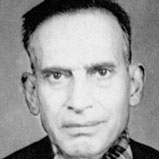
Asoke Nath Mitra
Professor Asoke Nath Mitra, a professor emeritus at Delhi University and a TWAS Fellow since 1993, passed away on 26 November 2022. He was a theoretical physicist, renowned for his studies on quantum electrodynamics, quark-gluon physics, and quantum field theory.
A native of the then-Indian city Rajshahi, now in Bangladesh, he obtained his first PhD from Delhi University, in 1953. Then he went to Cornell University, in Ithaca (US), where he got his second PhD, in 1955.
At the age of 34, in 1963, he moved to Delhi University where he started his career as a professor of physics, and, in 1973, he became the head of the physics department. There, he worked to introduce changes in department policies, advocating, for example, more academic autonomy and the liberty to invite foreign experts to visit and lecture.
Mitra was deeply committed to the cause and objectives of TWAS and for many years he actively supported the Academy.
After his retirement from Delhi University, he became a freelance writer-researcher. His most recent publication is a book entitled India in the World of Physics Then and Now. He received the Shanti Swarup Bhatnagar Award (1969), the Meghnad Saha Award (1975) and the S.N. Bose Medal of the Indian National Science Academy (1968).
***
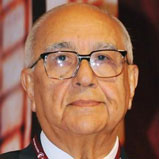
Abdel Salam Majali
Prof. Abdel Salam Majali, a former prime minister of Jordan and a TWAS Fellow since 1986 passed away on 3 January 2023, at the age of 98. A native of Karak, in Jordan, he obtained his Medical Doctor degree from Syrian University, in Damascus, in 1949. Later on, he earned a Diploma of Laryngology and Otology, from the Royal College of Surgeons and Physicians, in London, in 1953.
A founding Fellow of the Islamic World Academy of Sciences (1986), Majali served as its president from 1999 to 2022. Since 2022 he was the Academy's president emeritus. He received the title of “Doctor Honoris Causa” from Hacettepe University, in Ankara, Turkey (1974) and from the University of Selangor, in Malaysia (2011).
He was a fellow of American College of Surgeons, since 1960, and of the Royal College of Physicians, London, since 1986. He also served as the Minister of Health of Jordan from 1969 to 1971; Minister of Education, from 1976 to 1979; Minister of State for Prime Ministry Affairs, from 1970 to 1971 and from 1976 to 1979, and Prime Minister of Jordan from 1993 to 1995, and 1997 to 1998.
He was also the chairman, University Council of the United Nations University, in Tokyo (Japan), from 1977 to 1982, and a member of UNESCO Executive Board (1985–1990). Prof. Majali received Jordan’s highest decorations, and decorations from Arab and European countries.
***
